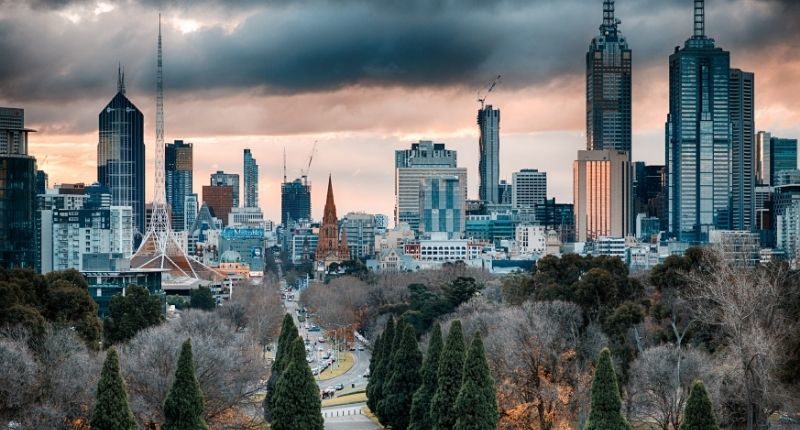
- The Windfall Gains Tax has been passed by the Victorian parliament
- Tax is designed to impact landowners who make sudden profits due to land rezoning
- Industry groups such as the Property Council, UDIA and Master Builders have attacked the legislation
The Victorian government’s Windfall Gains Tax has been passed by Parliament, despite strong resistance from leading property industry groups.
The Windfall Gains Tax marks the 19th new or increased property tax since the Andrews Labor Government was elected.
How the Windfall Gains Tax works
The tax will apply to landowners who benefit when their property value rises due to a decision to rezone land.
A windfall gain is the sudden and unexpected profit the landowner makes due to land rezoning increasing the property value.
Taxation will begin at a windfall gain of $100,000 and reach the maximum taxation level of 50% for windfalls above $500,000.
The tax was announced in the Victorian Budget 2021/22 and was heavily criticised at the time by the Property Council of Australia (PCA) for pushing homeownership further out of reach.
Victorian Government Treasurer Tim Pallas said the tax was formulated by the Government in conjunction with industry consultation.
“We want to ensure Victoria has a fairer tax system, with revenue from the windfall gains tax going back into Victorian schools, hospitals and public transport.”
Tim Pallas, Treasurer
Residential land with an existing home is exempt from the new tax, as will land that is rezoned to most rural zones or a Public Land Zone.
Primary production land is exempt for up to two hectares, and some exemptions will be allowed for land owned by charity organisations.
Industry groups unite in opposition
Leading industry groups The Property Council of Australia (PCA), Housing Industry Association (HIA), Urban Development Institute of Australia (UDIA) Victoria and Master Builders (MBA) Victoria have condemned the passing of the tax.
According to the PCA, the Windfall Gains Tax comes after the May State Budget’s substantial increases in stamp duty and land tax.
Danni Hunter, Victorian Executive Director of the Property Council, said the introduced tax will further limit accessibility to homeownership for Victorian families.
“This is a tax on Victorian families, jobs and investment when we can least afford it as we finally emerge from the world’s longest lockdown.”
Danni Hunter, Property Council
“This new tax will only make it harder for average Victorians to realise their home ownership dream, many of whom have watched on in horror as property prices skyrocketed over the last 12 months,” Ms Hunter said.
One in four Victorians in the workforce are employed by the property, construction, housing and development industries.
Furthermore, 59% of the state’s taxation revenue is already paid by building and property, raising questions as to the necessity of yet another tax.
“As a result of severe stress in the industry due to COVID shutdowns, supply and labour shortages and rising costs in the construction sector, it is anticipated that 25,000 homes fewer than pre-pandemic projections will be brought to market in Victoria by 2023.
“Increasing the tax burden will only increase the number of Victorian families priced out of a market where supply is already unable to keep pace with demand,” Ms Hunter added.

In the bad books with industry leaders
Fiona Nield, Victorian Executive Director of the HIA, said the tax would only further compound housing affordability issues, seeing prices of a housing lot in Geelong increase by as much as $53,000.
“There is no way that you can improve housing affordability by adding new taxes, fees and charges.”
Fiona Nield, HIA
According to Ms Nield, 90% of renters aspire to become homeowners but less than half believe this dream will become a reality.
“It will impact land prices and home buyers at all levels at a time when housing continues to become less affordable as dwelling prices outpace earnings.
“This is especially true in regional areas of Victoria,” said Ms Nield.

Matthew Kandelaars, Chief Executive of the UDIA, said regional Victorians will be disproportionately impacted and pay more than double the charge those in Melbourne will.
“The Government has chosen to leave the regions behind with the passage of this new tax,” he said.
“It’s the value generated from a rezoning that builds homes, creates and sustains jobs and builds communities. If development stops then housing supply dries up and prices will skyrocket,” Mr Kandelaars concluded.
Rebecca Casson, Master Builders Victoria CEO, said the introduction of the Windfall Gains Tax would place the state’s economic recovery in a precarious position.
“The building and construction industry supports 320,000 Victorian workers and delivers thousands of new homes a year and is critical to our state’s economic recovery from the pandemic,” Ms Casson said.







